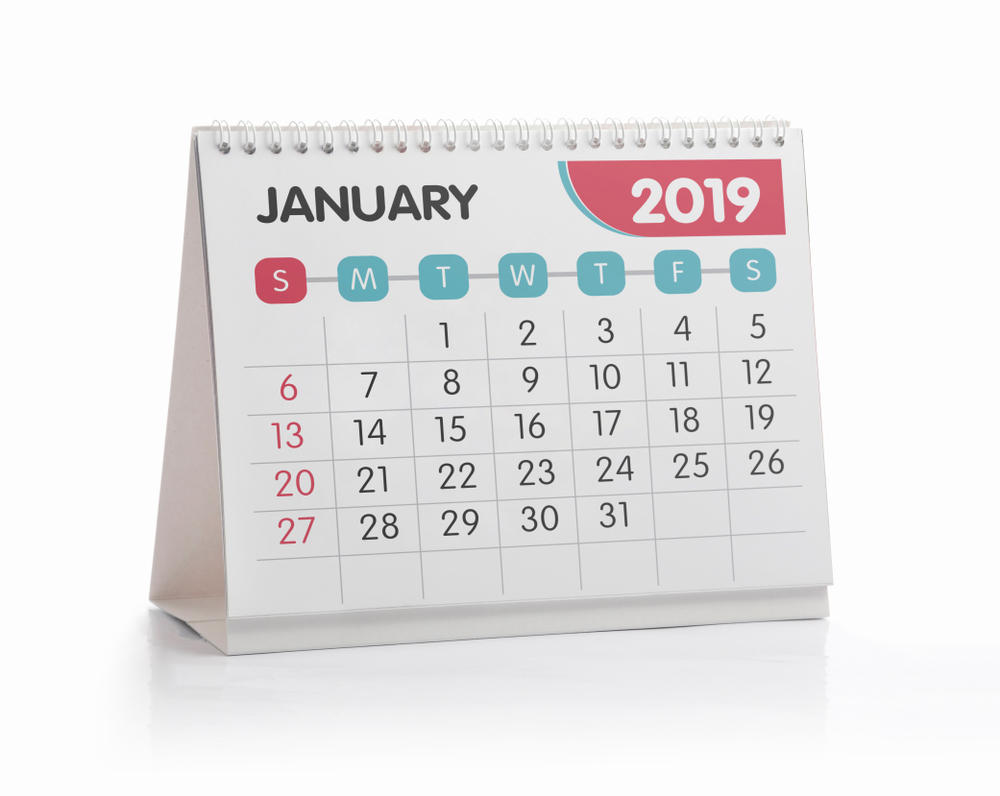Household Bills
The key dates for your finances in 2019

With so much Brexit-related uncertainty, it won’t be easy to plan entirely for 2019. But there are certain events that look set in stone. Here’s a run-down of the important dates to put in your diary.
1 January – Energy cap comes into force
The regulator Ofgem set the cap in November at £1,137 a year for a typical dual fuel customer. Suppliers will have to cut their default tariffs, including standard variable rates, to this price or below. It will save customers on the priciest tariffs up to £120 annually on gas and electricity.
2 January – Annual rail fares increase
UK rail fares will rise by an average of 3.1%, spelling bad news for millions of commuters. For example, the cost of a season ticket from Swindon to London, including tube travel, will rise from £9,448 to £9,741.
31 January – Self assessment deadline day
If you are required to submit a tax return, you’ll have to have done so online by this day – and paid your tax bill. If you miss the deadline, you face a £100 fine.
March (and October) – Free Wills Month
Anyone over 55 can get a simple will made or updated by a solicitor free of charge. You’re encouraged to make a charitable donation but there’s no obligation. For more information, visit https://freewillsmonth.org.uk/
1 March – Information about broadband speeds
Providers will need to give a minimum guaranteed speed to prospective customers at the point of sale from today. If the speed drops below this level, broadband firms will have 30 calendar days to improve performance, otherwise customers will be able to walk away penalty-free.
29 March – The UK leaves the EU
The Brexit transition phase is due to begin today, although very little is expected to change on the day itself.
1 April – New minimum wage rates
The National Living Wage (for age 25+) rises from £7.83 to £8.21.
The National Minimum Wage rises to £7.70 (21-24 years olds), £6.15 (18-20 year olds), £4.35 (16-17 year olds), and £3.90 (apprentices under 19 or in the first year of their apprenticeship).
5 April – Last day of the tax year
This is the last day to take advantage of the 2018/19 ISA and pension allowances.
6 April – First day of the tax year
You now have a new set of ISA and pension annual allowances to use up. The ISA limit will remain at £20,000 for this tax year but the junior ISA threshold has gone up to £4,368 from £4,260.
The minimum auto-enrolment contributions go up from 5% to 8%, with at least 3% coming from the employer and 5% coming from the employee.
The State Pension will rise by 2.6% meaning those with the old State Pension will get an extra £3.25 a week and with the new State Pension will get £4.25 more a week.
The personal allowance – the amount you can earn before paying income tax – rises to £12,500 and the higher rate tax threshold goes up to £50,000.
21 June – Go Home on Time Day
A national campaign to raise awareness of the importance of a work life balance. You’re encouraged to leave work on time and go and do something you enjoy.
31 July – Tax credit deadline
Anyone who claims tax credits – Working Tax Credit or Child Tax Credit – could have their payments stopped or may have to pay back money received since April 2019 if they miss this deadline. They could even face a fine.
29 August – PPI deadline
You have until 11.59pm today to make a claim for mis-sold Payment Protection Insurance (PPI) or else lose your right to have your complaint assessed.
27 September – One-year anniversary of the Marcus account
If you opened the top-paying Marcus easy access account on the day of launch, your rate will fall today as the introductory bonus ends. Check to see if there are better deals out there and if there are, move your money.
31 October – Paper self-assessment deadline
If you complete your self-assessment on paper, this is the deadline for your 2018/19 return to be with HMRC.
30 November – Help to Buy ISA ends
From today onwards, you won’t be able to open a Help to Buy ISA, although those with existing ones can continue to contribute to them.